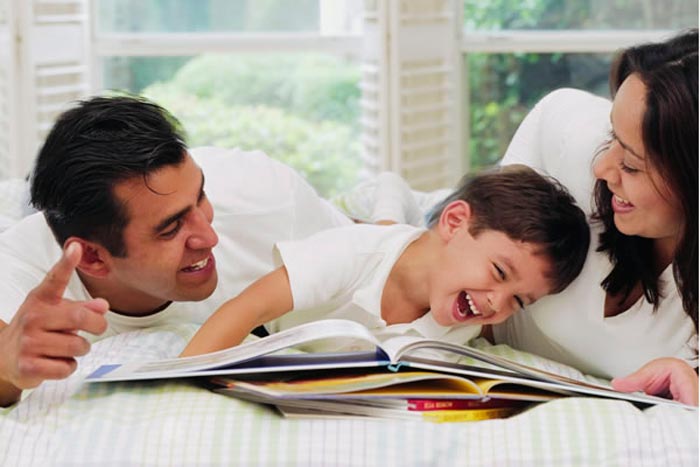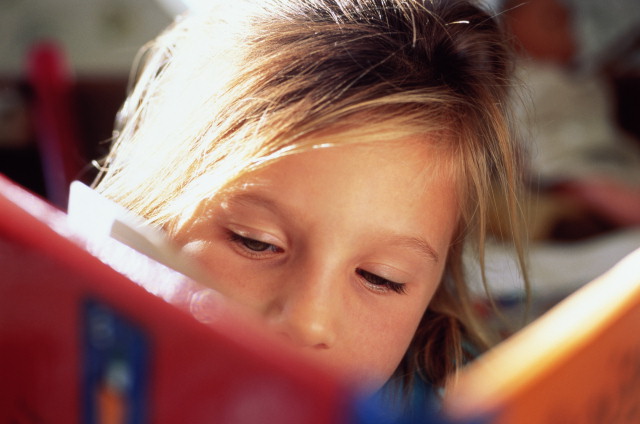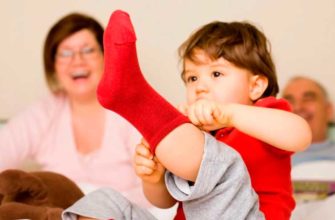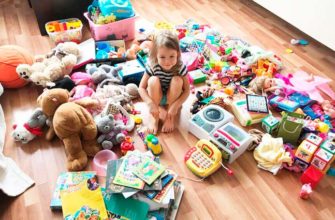Your child is not your property. This is a separate, self-sufficient individual who has to experience and accumulate experience throughout his life. Wise parents realize that our world is often a very harsh place, and mom and dad, sadly, not forever ...

And therefore, it is vitally necessary from the very first years to accustom your child to independence! To develop in him a firm character and will, the ability to solve his problems without involving outsiders. Find out what 7 important actions parents need to take to instill in their child the ability to resolve any difficulties.
Do not block your child from all problems
You must clearly understand that the parental task is to help children in solving problems, give valuable advice, guide children's mind in the right and right direction. But there is no way to rush forward, covering with your chest from any misfortune!
A child who has always been in the shadow of parental care simply will not be able to cope with problems on his own in later life. A large (I would even say the overwhelming) part of important skills is formed in deep childhood. And it will be much easier for a child to learn independence gradually and smoothly, throughout his life. Think about this: it is extremely reckless to over-patronize your child, if you have no guarantees that you can continue to do this at all times. Otherwise, you will simply throw at the mercy of fate a bewildered and helpless person who did not even bother to make hardened and persistent.
READ ALSO: How our childhood affects future life. 12 facts from childhood
Ask your child questions so that he can learn to look for answers.
A person should be able to think rationally, quickly assemble and concentrate even in the most difficult situation. To teach this child is not difficult: every time he runs to you for ready-made answers, do not facilitate his task. And help him find this answer with guiding questions. In addition, this method has a good effect on the development of mental activity, and can serve your child a useful service in the distant future.
Did the child come running to you so that you immediately give him a simple and correct solution? Do the opposite. A simple example: a primary school student is worried about tomorrow’s test, can’t get together, prepare carefully, and worry too much. Ask your child questions, gradually and smoothly leading him to see for himself the solution to his problem:
- Are you worried only because you are afraid to get a bad mark?
- Do you know why a teacher can deliver it?
- If you are well prepared, can there be a bad mark?
- What should be done now to get only a good grade?
- Do I need to worry if you are well prepared?
Thus, the child will calm down and understand that you should only re-read the material in the textbook several times, but there is no reason for all his worries.
Instructive performance instead of criticism
It is impossible to reach the child if he is offended. Rigid criticism and remarks are more likely to cause the opposite effect: the child will decide that they do not understand him, close himself, and the further discus will not bring any sense.
There is a simple way out: tell us about a similar situation, replacing the main character (child) with someone else. For example, on a character from a fairy tale, book or cartoon. And then the child himself will be able to draw all the necessary parallels, think about it and come to the right conclusions.
Instead of chastising the child with foam at the mouth for sloppiness, tell him a parable about a dirty little bear who did not tidy up his room, and therefore his friends did not come to visit him. You can even come up with a fascinating dialogue or game to maximize the involvement of the child in it. The main thing - no direct criticism!
READ ALSO: 10 phrases that make children of notorious adults
Give your child the opportunity to make mistakes
Often this causes the most problems. Parents simply cannot ignore the situation where their beloved child is striving for a clearly losing solution. At the initial stage, there is a desire to pull the child, to indicate the correct path. But without mistakes there will be no experience. And experience is the wisest teacher!

Independent children themselves correct their mistakes
The child must understand that the result of his wrong actions will always follow the need to solve subsequent problems. Say, for a bad behavior in the classroom, the teacher will put a unit in the diary, and at home, parents will refuse sweets for this after lunch or will be forbidden to go out in the evening with friends. No one has canceled the cause and effect relationships, and the child should calmly respond to the subsequent punishment, taking it for granted, caused by his own actions.
Parents of independent children understand that failure is inevitable
History is literally teeming with examples when even brilliant people didn’t succeed 10, 50, or even 100 times. And at 101 all of a sudden everything turned out just fine!
Teach your child to never give up. If he really wants something, then he should strive for it. Encourage him, tell motivating real-life examples. And if all attempts persistently do not lead to anything, then look together for a possible mistake. Probably, you just need to slightly adjust the action plan.
Increase responsibility and let your child make decisions on their own
A primary school student is already capable of not only dressing independently and tidying up in his room, but also taking on a minimal part of “adult problems”. If your child wants to have the right to his personal opinion and be considered an adult, then do not bother him, but reasonably encourage him. But show that being an adult means being responsible.
You can develop leadership skills by letting your child sometimes make decisions for you. But teach him that it will be he who will be responsible if his decision turns out to be wrong.
READ ALSO:How to raise and raise an optimistic child? Tips for Parents
http://www.youtube.com/watch?v=RM6Y3oOKtGI









In my experience, I was convinced that one of the most important factors in raising a child is personal space. From childhood, you need to teach your child that everyone has the right to personal space. In no case should you infringe on the child, you should not control it too much, you need to give more freedom, and, believe me, when your child feels at least a little freedom, he becomes much more independent.
Yes, excessive custody only hurts. Of course, the child needs love and care, but at times you need to give him the opportunity to make decisions and be responsible for them. I try to educate my children in this spirit.